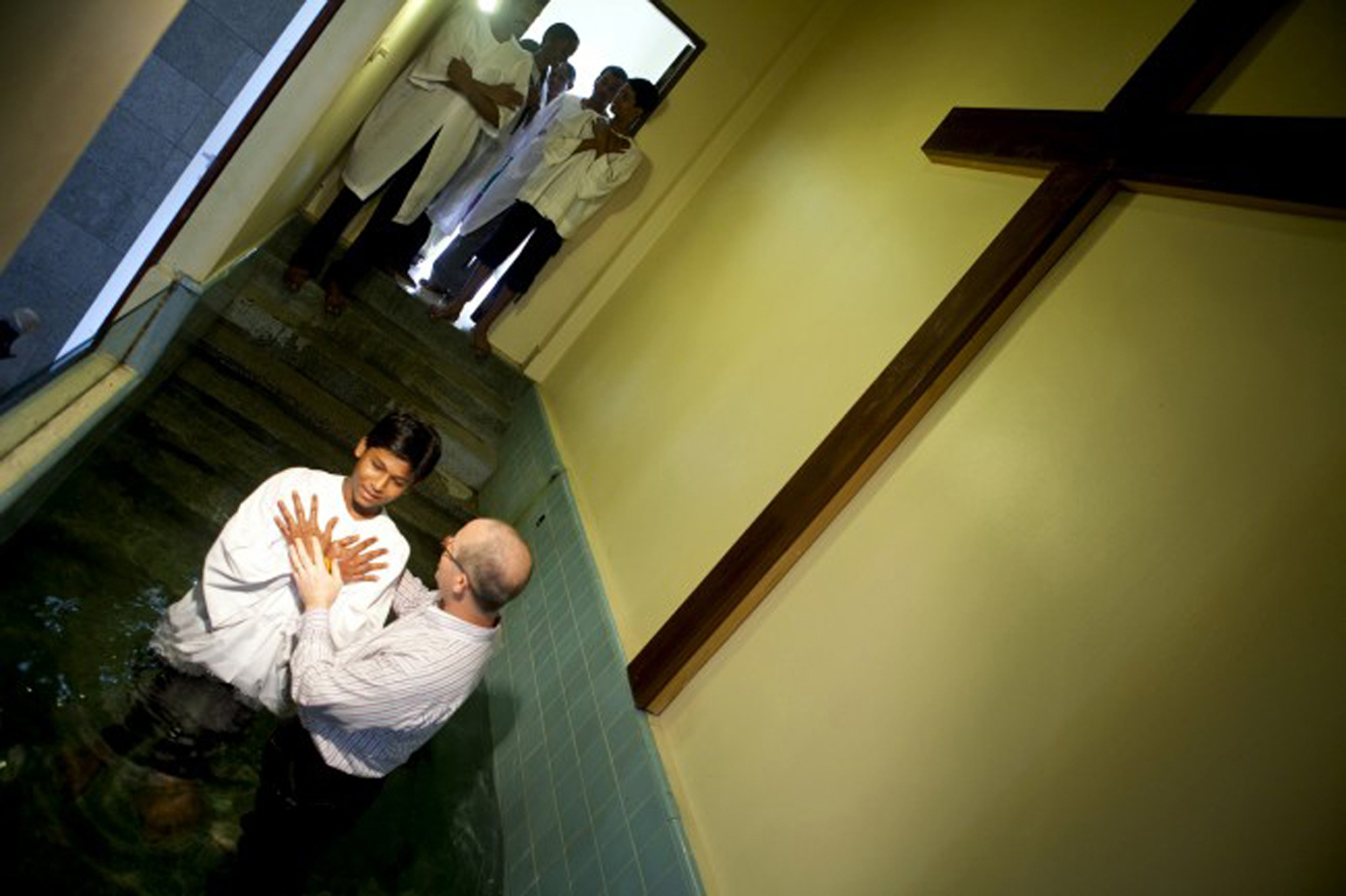
NASHVILLE (BP) — It’s been an uplifting year for the Cooperative Program.
The church led by SBC President Ronnie Floyd reached the $1-million mark during its 2014-15 budget year in giving to Southern Baptists’ cornerstone channel for supporting missions and ministries — state by state, nationally and internationally.
“Increasing your church’s support through the Cooperative Program is the greatest way you can forward the work of reaching the world for Christ,” Floyd, senior pastor of Cross Church in northwest Arkansas, wrote in a Sept. 21 column.
Floyd’s column preceded the annual Cooperative Program Emphasis Month in the SBC each October. For online CP resources, click here.
Noting the Cooperative Program’s comprehensiveness in advancing the Gospel during its 90-year history, Floyd wrote: “Not one of us can adequately support any one cause, but all of us together can pray, plan, give, cooperate and support every cause.”
For the 2014-15 fiscal year, Cooperative Program gifts by Southern Baptist churches — $189,160,231.41 — reached 100.62 of the convention’s Cooperative Program Allocation Budget to support the International Mission Board, North American Mission Board, the SBC’s six seminaries, the Ethics & Religious Liberty Commission and convention operating expenses.
The 2014-15 total was 1.39 percent above Cooperative Program receipts for the previous fiscal year for SBC causes.
‘Kingdom work’
In Florida, the State Board of Missions has recommended a budget to allocate 51 percent of Cooperative Program receipts to Southern Baptist outreach nationally and internationally, which will be placed before messengers at the state convention’s Nov. 8-10 annual meeting in Panama City.
“This would have global implications,” said Tommy Green, the convention’s new executive director-treasurer who set forth the shift in Florida CP funding upon his election to the post in late May.
“It’s not just about Florida,” Green said of the budget recommendation. “It’s about Kingdom work.”
If adopted by messengers, the Florida convention would join three other states with budgets allocating half or more of their Cooperative Program receipts to SBC causes — the Southern Baptists of Texas Convention, at 55 percent since 2008, up from 50 percent at its inception in 1998, and Iowa and Nevada Baptists who moved to the 50-50 mark at their conventions last fall. The SBC of Virginia, meanwhile, allocates 51 percent, including shared expenses which are in the process of being phased out of their budget.
At the Send North America Conference in Nashville in August, the Cooperative Program was the focus of a panel discussion featuring four of Southern Baptists’ most visible leaders — North American Mission Board President Kevin Ezell, Southern Baptist Theological Seminary President R. Albert Mohler Jr., Southeastern Baptist Theological Seminary President Daniel Akin and Russell Moore, president of the SBC Ethics & Religious Liberty Commission.
Southern Baptists’ mission boards and other entities could not do what they do, Ezell noted, “if it were not for the sacrificial gifts of people in churches who give faithfully every Sunday.”
“How else,” Mohler asked the 13,000 conference attendees, “are you going to give to the local church and have it reach so many different places without you having to think about it all the time? Eighty-plus-year-old ladies in Arkansas giving out of their annuity checks made it possible for 13,000, largely very young, people to be in here, and they did not have to orchestrate it, but they want to be a part of it.”
‘Heartfelt gratitude’
The 1% CP Challenge initiated by SBC Executive Committee President Frank S. Page continues to expand across the SBC.
More than 4,400 Southern Baptist churches met or exceeded the challenge to increase their Cooperative Program support by 1 percentage point of their budgets, according to an Oct. 1 Baptist Press report this year.
Nearly 3,850 churches met the challenge for the first time during the 2013-14 fiscal year (Oct. 1-Sept. 30) and 576 met the challenge for two consecutive years.
Page sent letters to the 4,400-plus churches underscoring, as he told BP, the “heartfelt gratitude on the part of every international missionary, every church planter in North America and Canada, every person in need or at risk from natural disaster, every seminary student, every plateaued or struggling church, and so many other people who are impacted.”
IMB drawdown
Floyd, in his Sept. 21 Baptist Press column, referenced the International Mission Board’s reduction of 600-800 missionaries and staff due to budget shortfalls in recent years.
“If you are concerned about some of our missionaries having to come home … the greatest thing your church can do to help turn it around is increase your giving through the Cooperative Program,” Floyd wrote of the IMB’s announcement in August.
“Pastor and church leaders, please go to your finance committee, deacon body, church board, elders or whoever is key to leading in the decisions of your church financially and appeal to them to increase your church’s financial support through the Cooperative Program as soon as possible.
“This helps us reach our states, our nation and our world for Christ,” Floyd wrote, noting, “This financial decision is a Gospel decision. … I pray your church will join my church and other churches that are stepping up during this time and increasing our financial giving through the Cooperative Program.”

















